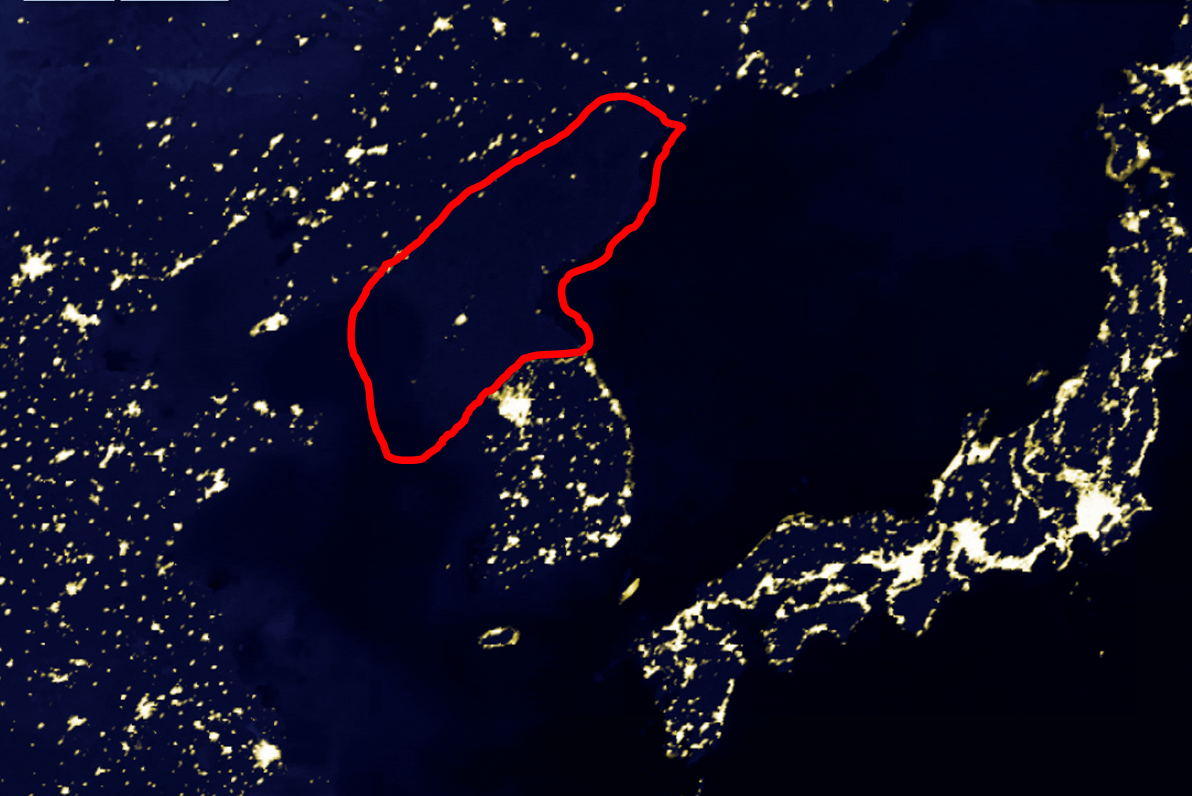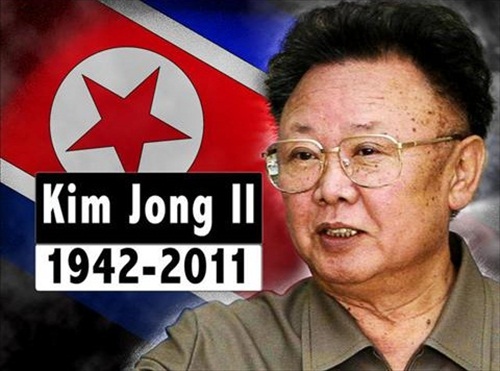STse: … It’s S3, actually. Or whatever is the newest they have out now.
After decimating Google Doc with terrible puns, we finally settled on a topic of discussion for the week. Although the whole thing with The Democratic People’s Republic of Korea, or North Korea, is hardly considered new news (pun #20), it definitely has the potential to expand into something that would last a little while on the international stage. North Korea has always been under a shroud of mystery in terms of their intentions. Kim Jong Il’s regime of “military-first” has been the root of his strength within the country and the policy of leadership over his people. Even as his death approached, the only thing that was known about the future of the country was that the “throne” would be succeeded by his son, Kim Jong Un. Kim Jong Un has stayed clear from the media spotlight (whatever spotlight they sanctioned, of course). Not much is known about him or his intentions as Supreme Leader of North Korea.
 |
| Satellite image of North Korea at night. Image courtesy of CyberArms. |
SMak: I think what’s scary about this succession is not knowing how much of an influence Kim Jong Un’s dad has had on him. Considering the country has been under military rule for so long and their openness in demonstrating their nuclear capabilities, should we be afraid that they are reckless enough to become a serious threat to the rest of the world?
STse: The thing people should understand about regimes such as North Korea is that even though Kim Jong Un is the perceived leader, not much is known of the power structure within the regime. Kim Jong Il was the supreme leader, yes -- but I highly doubt that he’d be comfortable having his son running a country at his late 20s. If I were a prominent leader in the international stage (read: Obama, Putin, Cameron, etc etc), I would have to assume Kim Jong Un is more of a symbolic president, with a committee of party elders influencing him every step of the way. That’s why I am very hesitant to dismiss threats from North Korea as a simple bluff: if you’re a leader in the Western world, you’d have to assume that the guy running the table at the other side knows what he’s doing. In this case, all threats and gestures by North Korea should be treated as a rational decision designed to invoke a response in favour of their own self-interest, rather than a reckless steroid-filled gesture on the part of the regime designed to simply threaten everyone in the civilized world.
 |
| Kim Jong Il. Image courtesy of Finance Twitter. |
SMak: You have a very strong point. I think it’s safe to say that anything North Korea does is in favour of their own self-interest. It seems that, despite logical reasons to take North Korea’s threat seriously, US Officials and specifically the United States National Intelligence Director are echoing sentiments that North Korea are merely trying to establish strength and garner recognition on the world stage. Then again, not only do we have to consider the direct threat of nuclear war against the US, but also the disintegration of relations between North and South Korea. After the North’s declaration of war on the South, it could be seen that they are willing to start a war close to their territory and against an ally of the US. Should the US take action to provide help to South Korea? If so, how much should the US be involved? Should they really be flying nuclear-capable B2 stealth bombers over? I understand that Washington has been in negotiation with Pyongyang (North Korea’s capital) in hopes of settling tensions and to possibly negotiate denuclearisation. Do you think North Korea would ever consider such a pact? As North Korea’s only allies, should we fear the participation of China as well?
Here is an article written by the BBC which offers ideas into US-North Korean negotiations: Viewpoint: Are US-North Korea talks possible?.
 |
| Kim Jong Un. Image courtesy of the Daily Sheeple. |
STse: Be that as it may, it is also probable that in addition to establishing North Korea’s military strength on the world stage, North Korea is exerting its own military might as a show of force. to its own people. After all, the changing of regimes (in this case, the transfer of power between the Kim’s) is often accompanied by chaos and confusion when it comes to the power structure. Dictatorial regimes rely on propagandist communication to control its own people -- it makes for good propaganda to tell your own people that you now have the capability to pack a nuclear bomb on a medium-range warhead. Plus, it makes a bold first statement when you’ve just stepped on to the international stage after spending 20-plus years behind a steel curtain. Tactically, it makes perfect sense for Kim Jong Un to establish his voice, especially if he wants to gain reputation and control over his own people -- he does have rather large shoes to fill after all following his father’s regime -- and to a lesser extent, to show to the players on the international stage that North Korea is not to be messed with despite a new, younger leader.
With regards to what the United States could do about the current situation, one needs to understand that it is in their best interest to maintain stability in the Asia-Pacific region -- they do have vested interest in Japan, South Korea, and Taiwan. One way of achieving said stability is to bring North Korea back to the six-party talks (to discuss nuclear disarmament amongst the leaders of China, the United States, the Russian Federation, Japan, and the Koreas). The question is then -- how would the United States bring North Korea back to table? With an iron fist (economic sanctions, military actions, etc) or with a friendly handshake (trade agreements, international aid, etc)? The US does not want to seen as too soft against North Korea, nor does it want to be too tough to risk further provocation. Until they figure out what to do with the current situation, the United States has to maintain its intelligence-gathering in North Korea while attempting to get China (North Korea’s only ally until the recent nuclear test) to act as a go-between to get North Korea back to the talks. Problem is, this being the international stage, you have to understand that all parties would be acting in their own self-interest -- and they may clash with one another’s. From North Korea’s point of view, the current economic sanction must end in order for the country to function, but they do not want to be seen as weak on the international stage and thus potentially lose control of its own regime. From China’s point of view, the situation in North Korea could be used as a bargaining chip against the United States in order to illicit more trades and agreements to continue developing as the next superpower, but must also understand that a collapse of the North Korean regime (say, if it enters into a world war with no end in sight) would mean millions of refugees flocking over to Eastern China for asylum. For the United States, it is in their best interest to prevent a revival of the Cold War by keeping the North Koreans from further developing advanced nuclear weapons technology that would reach the West Coast -- question is, how much interest must the U.S. surrender in order to get North Korea to disarm? In the end, it will probably turn into a contest of who blinks first -- whoever is under more pressure to resolve the situation will probably be forced to take action by giving up some of its own gambling chips.
SMak: The discussion over North Korea and its relation with the world is a topic too vast and complicated for this blog-space, but I hope that this entry has offered information and perspectives that can aid my readers to form their own opinions on the situation. Thank you, Simon, for offering your brain to this project. Stay tuned for future blog posts of this nature and be sure to check his personal blog for more of Simon!

No comments:
Post a Comment